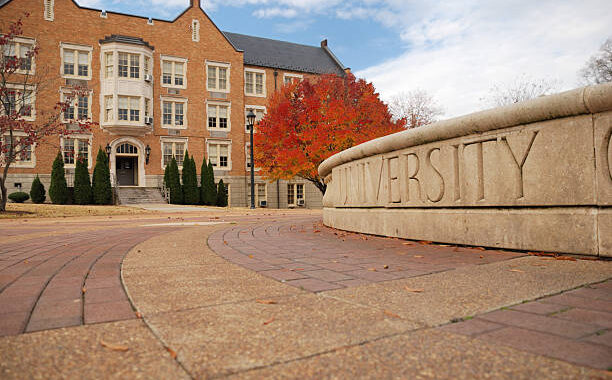About Us
Our mission at FTZ is to provide students with introduction level requirements and awareness to professional careers outside of a traditional educational environment.
Contact usContact Us Today
- 145 fleet st #233 National Harbor, MD 20745
- 240-935-1802
- info@functionaltrainingzone.net
- Monday-Friday: 9:30am-4pm
Desarrollo de habilidades
Days With Daniela¡Hola! Bienvenidos todos a mi blog. El día de hoy hablaremos de la importancia deldesarrollo de habilidades relevantes para el mercado laboral.El mundo laboral es muy competitivo y la clave para destacar no solo radica en lo quesabemos, sino en nuestra capacidad para aprender y adaptarnos continuamente. Comojóvenes adultos, enfrentamos el desafío de equilibrar estudios, trabajo y vidapersonal/social, mientras buscamos oportunidades para crecer profesionalmente.Habilidades de ComunicaciónLa comunicación efectiva es una de las habilidades más valoradas en el entorno laboralactual. No solo facilita la colaboración y la resolución de problemas, sino que tambiénes crucial para el liderazgo y el desarrollo profesional.● Cursos: Coursera, LinkedIn Learning para técnicas de presentación, edX (ByHarvard Business School) para liderazgo y comunicación afectiva.● Prácticas: Participar en grupos de debate o en organizaciones comoToastmasters.Desarrollo a Habilidades TécnicasLas habilidades técnicas son esenciales para mantenerse competitivo en el mercadolaboral. Todo depende de en qué habilidades estás interesado, hay una ampliavariedad de cursos y recursos disponibles para ayudarte a desarrollar estascompetencias.● Cursos: Google Digital Garage donde podrás aprender sobre marketing digital,desarrollo de negocios y habilidades tecnológicas. Pluralsight para desarrollarsoftware, TI, y diseño, donde expertos en el ámbito los imparten. Skillshare teayudará a desarrollar tus habilidades técnicas o artísticas y te ayudarán a tenermás certificados y harán ver tu currículum más variado y profesional.● Práctica: Trabaja en proyectos personales para aplicar lo aprendido y construirun portafolio que puedas mostrar a futuros empleadores.Finanzas y Gestación de TiempoManejar adecuadamente tus finanzas y tu tiempo es esencial para el éxito tanto en launiversidad como en el trabajo.● Cursos: Coursera para aprender sobre finanzas personales, incluyendo temascomo ahorro, inversión y presupuestación.● Aplicaciones: Mint Una aplicación gratuita que te ayuda a gestionar tus finanzas,crear presupuestos y realizar un seguimiento de tus gastos. YNAB (You Need ABudget) una herramienta que te ayuda a planificar y controlar tus finanzas demanera efectiva. Todoist es una aplicación de gestión de tareas que te ayuda aorganizar y priorizar tus actividades.ConclusiónA través de este blog, hemos explorado una variedad de cursos y recursos que puedenayudarte a desarrollar habilidades esenciales, desde la comunicación efectiva hasta lascompetencias técnicas más demandadas. La gestión adecuada de tus finanzas y tutiempo también juega un papel crucial en tu éxito personal y profesional. Al aprovecharestas herramientas y técnicas, no solo estarás mejor preparado para enfrentar losdesafíos del mercado laboral y el mundo real. Recuerda que con dedicación y lasherramientas adecuadas, puedes construir un futuro brillante y lleno de posibilidades.
- Days with Daniela
- 0 Comments
- January 27, 2025
Skill Development
Days With DanielaHello! Welcome to my blog. Today, we will talk about the importance of developing skillsrelevant to the job market. The job market is very competitive, and the key to standingout lies not only in what we know but also in our ability to learn and adapt continuously.As young adults, we face the challenge of balancing studies, work, and personal/sociallife while seeking opportunities for professional growth.Communication SkillsEffective communication is one of the most valued skills in today’s work environment. Itnot only facilitates collaboration and problem-solving but is also crucial for leadershipand professional development.Recommended Courses:● Coursera: Offers courses on presentation techniques and effectivecommunication.● LinkedIn Learning: Specific courses to improve your presentation skills.● edX: Courses from Harvard Business School on leadership and effectivecommunication.Practice:● Participate in debate groups.● Join organizations like Toastmasters to practice and improve your publicspeaking skills.Technical Skills DevelopmentTechnical skills are essential to remain competitive in the job market. Depending onyour interests, there is a wide variety of courses and resources available to help youdevelop these competencies.Recommended Courses● Google Digital Garage: Courses on digital marketing, business development,and technological skills.● Pluralsight: Courses taught by experts in software development, IT, and design.● Skillshare: Courses to develop technical or artistic skills, which can enrich yourresume.Practice:● Work on personal projects to apply what you’ve learned and build a portfolio thatyou can show to future employers.Personal Finance and Time ManagementManaging your finances and time properly is essential for success both in university andat work.Recommended Courses:● Coursera: Courses on personal finance, including topics like saving, investing,and budgeting.Applications:● Mint: A free app that helps you manage your finances, create budgets, and trackyour expenses.● YNAB (You Need A Budget): A tool that helps you plan and control yourfinances effectively.● Todoist: A task management app that helps you organize and prioritize youractivities.ConclusionThrough this blog, we have explored a variety of courses and resources that can helpyou develop essential skills, from effective communication to the most in-demandtechnical competencies. Proper management of your finances and time also plays acrucial role in your personal and professional success. By leveraging these tools andtechniques, you will be better prepared to face the challenges of the job market and thereal world. Remember that with dedication and the right tools, you can build a bright andfull of possibilities for the future.
- Days with Daniela
- 0 Comments
- January 27, 2025
Living with Anxiety
Days with Daniela Hello everyone! Welcome to today’s blog. We will be talking about anxiety, its signs, and how to reduce and cope with it. Anxiety is a human feeling that can prompt us to take action and prevent us from dangerous situations. The problem starts when that anxiety becomes constant and stops you from carrying out your daily activities. Many university students suffer from this, which prevents them from showing their full potential in classes and exams and worsens their situation. What are the signs of anxiety? The signs or symptoms of anxiety affect you both mentally and physically. Physical Symptoms: Mental/Emotional Symptoms: These symptoms can lead to behaviors that are not beneficial and can affect your academic life, such as procrastination, difficulty sleeping/insomnia, changes in eating habits, social isolation, excessive self-criticism, or compulsive/repetitive behaviors. Anxiety cannot be eliminated because it is still a necessary emotion, but it can be reduced to live a fulfilling life.
- Days with Daniela
- 0 Comments
- October 26, 2024
Viviendo con Ansiedad
Days with Daniela ¡Hola a todos! Bienvenidos al blog de hoy hablaremos de la ansiedad, sus signos y cómo reducirla y lidiar con ello. La ansiedad es un sentimiento humano que puede hacer que nosotros tomemos acción y prevenirnos de situaciones peligrosas. El problema empieza cuando esa ansiedad se vuelve constante y te detiene de realizar tus actividades diarias. Muchos alumnos en la universidad sufren de eso y no los dejan poder mostrar todo su potencial en sus clases y exámenes, empeorando sus situación. ¿Cuáles son los signos de ansiedad? Los signos o síntomas de la ansiedad te afectan tanto mentalmente como físicamente. Sintomas Fisicos: Síntomas Mentales/Emocionales: Estos síntomas pueden hacer que tengas conductas que no te favorecen y afectan hasta tu vida académica, algunos ejemplos son la procrastinación, la dificultad para dormir/insomnio, cambios en los hábitos alimenticios, aislamiento social, autocrítica excesiva o comportamientos compulsivos o repetitivos. La ansiedad no se puede deshacer completamente porque sigue siendo una emoción necesaria, pero si se puede reducir para vivir una vida plenamente.
- Days with Daniela
- 0 Comments
- October 26, 2024
My Experience Living Off-Campus vs. On-Campus
Days with Daniela Hello! Welcome to my blog. Today, I will be talking about my experiences living off-campus and on-campus, and which I consider better depending on your situation and preferences. In my first year, I didn’t have the opportunity to live on-campus because there were too many students, so I had to move to an apartment not too far from the university. In my second year, I moved on-campus. Off-Campus Cost of Living: The cost of the apartment where I lived was moderate. For me, the only thing that mattered was having privacy and not being too far from the university. Besides paying monthly rent, I also paid for electricity and groceries. While looking for an apartment, I found very high prices, so I recommend searching well to avoid higher costs. Transportation: The city where my university is located has many transportation options, both paid and free, like buses. In my case, I don’t have a car, so I don’t have the extra expense of gas. If you plan to bring your car to the university, consider this additional cost. Social Life: Living off-campus makes it harder to make friends, and sometimes you miss out on events and activities on campus, especially if you’re not very social. In my case, it was difficult to socialize compared to now that I live on-campus, but everyone is different. Amenities and Services: You can have access to sports facilities, pools, and a mailbox included in the rent, as I did. However, other apartments might offer more services at a higher price. Independence and Responsibility: Besides your academic responsibilities, you also have to manage your time for household chores, which takes time. I recommend having a schedule for general cleaning, and if you have a roommate, share the tasks (unfortunately, my roommate never wanted to help). A positive aspect of living off-campus is that you have more privacy and freedom. Impact on Studies: They both have positive and negative impacts. On-Campus Cost of Living: The cost of living on-campus can vary depending on the university. In my case, it’s somewhat high, and I live in a double or suite, but my payments include utilities like electricity and water. There’s also the cost of the meal plan, which depends on how much food you plan to pay for. Other services you have to pay for include the mail service; in my case, I have to rent a mailbox. Transportation: Many universities offer free transportation within the campus or to nearby areas. But if you have a car, there’s an extra cost for parking and gas. Social Life: Participating in clubs and student organizations, which sometimes have additional fees, is a great opportunity to meet more people and socialize. Since I moved on-campus, it’s been easier to socialize and make friends. Amenities and Services: Recreational and sports facilities are included in the cost of living, such as pools, gyms, and sports fields, although some sports have an additional cost. There’s also a cleaning service. Academic services like tutoring, study areas, and libraries help you improve your grades. Health and mental wellness services are included in your tuition. Independence and Responsibility: Sharing a room with another person teaches you to coexist and be organized. You’ll learn to save your money and spend responsibly. You’ll start to have a routine that will positively impact your personal care and studies. In my case, I find it easier to live on-campus. Impact on Studies: There are also positive and negative aspects. BONUS! Security is very important. Living on-campus is safer than living off-campus. There is 24/7 security with patrols and good lighting. On my campus, we have a system with phones in various parts of the campus in case you feel unsafe, and there’s also an escort service to accompany you to a safer place. Conclusion: The decision between living on-campus or off-campus depends on your priorities and lifestyle. In my case, I prefer living on-campus, as it has brought me more social and academic benefits. It’s very important to know your needs and goals to make this important decision. If you don’t like the choice you made, you always have the chance to change. Good luck at your university!
- Days with Daniela
- 0 Comments
- October 22, 2024
Mi experiencia de vivir fuera del campus vs. dentro del campus
Days with Daniela ¡Hola! Bienvenidos a mi blog, hoy estaremos hablando de mis experiencias viviendo fuera del campus y dentro del campus y cuál considera mejor dependiendo de tu situación y comodidades. En mi primer año no tuve la oportunidad de vivir dentro del campus porque había muchos alumnos y tuve que mudarme a un apartamento no tan lejos de la universidad. Y el segundo año me mude dentro del campus. Fuera del campus Costo de Vida: El costo del apartamento donde vivía era moderado, para mi lo único que importaba era tener una privacidad y que no estuviera tan lejos de la universidad. Aparte de pagar renta al mes, también pagaba la electricidad y la despensa. Mientras buscaba un apartamento encontré precios muy altos y si recomiendo buscar bien para que no te salga mas caro. Transportación: La ciudad de mi universidad tenía muchos medios de transporte, ya sea con paga y gratis, como los buses. En mi caso yo no tengo carro, entonces yo no tendré ese gasto extra que sería la gasolina para tu carro, si piensas traerlo a la universidad. Vida Social: Viviendo fuera del campus es más difícil hacer amistades y hay veces en las que te pierdes de eventos y actividades en el campus y más si no eres tan social. En mi caso si se me fue difícil socializar a comparación de ahora que vivo en el campus, pero cada persona es diferente. Comodidades y Servicios: Si puedes tener acceso a instalaciones deportivas, albercas y buzón incluido en la renta en mi caso. Pero hay otros apartamentos que podrían ofrecer más servicios a mayor precio. Independencia y Responsabilidad: Aparte de tus responsabilidades escolares también tienes que gestionar el tiempo para tus deberes en el hogar, y la verdad toma tiempo, te recomiendo tener un horario para cuando tengas que hacer limpieza general, y si tienes un compañero de cuarto, compartan las tareas (lamentablemente mi compañera nunca quiso ayudar). Algo positivo de vivir fuera del campus es que tienes más privacidad y libertad. Impacto en el Estudio: Hay impactos positivos como negativos. Dentro del campus Costo de Vida: El costo de vida dentro del campus puede variar dependiendo de la universidad. En mi caso si está medio alto y yo vivo en un double o suit pero en mis pagos ya vienen incluido servicios de luz y agua. También está el gasto del plan alimentario que depende en cuanta comida tu piensas pagar. Otros servicios que tienes que pagar son el servicio de paquetería, en mi caso tengo que rentar un buzón Transportación: Muchas universidades ofrecen transporte gratuito dentro del campus o a áreas cercanas. Pero si tienes carro hay un costo extra por servicio de estacionamiento y gasolina. Vida Social: La participación en clubes y organizaciones estudiantiles, que a veces pueden tener cuotas adicionales, pero es una gran oportunidad para conocer más personas y socializar. Desde que me mude dentro del campus se me ha hecho más fácil socializar y hacer amistades. Comodidades y Servicios: Hay instalaciones recreativas y deportivas que ya están incluidas en pago de costo de vida, como lo son las piscinas, gimnasio, y campos deportivos, pero hay deportes que tienen un costo adicional. También hay servicio de limpieza. Servicios académicos que te ayudarán a mejorar tus grados como tutorías, áreas de estudios y bibliotecas. Servicios de salud y bienestar mental que ya vienen incluido en tu matricula. Independencia y Responsabilidad: Como compartes el cuarto con otra persona y tienes que aprender a convivir y ser organizado. Tienes que aprender a ahorrar tu dinero y gastar de manera responsable. Empiezas a tener una rutina que tendrá un impacto positivo en tu cuidado personal y estudios. En mi caso si encuentro más sencillo vivir dentro del campus. Impacto en el Estudio: También tiene sus cosas positivas y negativas. ¡BONUS! La seguridad es muy importante, vivir dentro del campus es más seguro que vivir fuera del campus. Hay seguridad 24/7 como patrullas, hay buena iluminación, en mi campus tenemos un sistema que ofrece unos teléfonos en varias partes del campus en caso de sentirse inseguros, también hay una escolta que te pueda escoltar a un lugar más seguro. Conclusión: La decisión entre vivir dentro o fuera del campus depende de tus prioridades y estilo de vida. En mi caso yo prefiero vivir dentro del campus, me ha traído más beneficios como sociales y académicos. Es muy importante saber tus necesidades y objetivos para hacer esa importante decisión, en caso que no te guste la elección que hiciste siempre tendrás la chance de cambiar. ¡Buena suerte en tu universidad!
- Days with Daniela
- 0 Comments
- October 22, 2024
Cómo ser exitoso en tus clases
Days With Daniela ¡Hola! Bienvenidos a mi blog, hoy hablaremos de como tener tiempo de hacer tareas y estudiar y mejorar tus grados pero también teniendo tiempo para socializar y si tienes un trabajo también tengas tiempo. Es verdad que las tareas y proyectos pueden ser más complicados y tú tienes más responsabilidades. En la universidad es cuando aprendes más los materias de tus clases por tu cuenta más que depender de un profesor, es más fácil que podrías atrasarte con tus tareas y proyectos, pero con los tips correctos podrás mejorar y aprender todo a tiempo para mantener tus grados altos y ser exitoso en tus clases. El temario: El temario es algo que se presenta en los primeros días de clases e incluye todas las tareas que se realizarán y los exámenes y cuánto valen para tu grado final. Te puedes sentir abrumado pero es importante empezar a organizarte para hacer todo a tiempo. Las clases: Las clases pueden ser variadas y puedes tener desde lecturas, laboratorios, y seminarios, y todos tienen requerimientos diferentes y días de entrega, hay que estar al tanto. Tips: Estos tips te ayudarán a mejorar en tus clases y tener todo organizado. Asiste a tus clases diario: Asistir a tus clases diarios te asegurará que no pierdas ninguna información importante que necesitas aprender, hay casos como el mío que tienes que ir siempre porque hay quizzes sorpresas o la asistencia es parte de tu grado total. Sí recomiendo que si no eres una persona de la mañana no tomes clases de las 8:00 AM porque no es lo mismo que en high school. Aprende a tomar apuntes: Hay muchos métodos de tomar notas como son Método Cornell, método “outline”, o páginas divididas que te ayudarán a procesar mejor la información para cuando estudies y siempre procura repasar así refrescaras tu memoria. Si un método de estudio no te funciona siempre tendrás la oportunidad de cambiar de método hasta encontrar algo que te favorezca y entiendas mejor. Crea un horario para estudiar: Estudia al menos de 30-40 mins y procura intercalar descansos. Cuida tu salud física y mental: Esta parte es muy importante, para ser exitosos en la escuela tenemos que procurar nuestra salud, así podemos aprender todo y memorizar. Es crucial tener una buena alimentación, tener tiempo para ejercitarse, tener un buen horario para dormir y también cuidar la salud mental, lidiando con el estrés o depresión. Busca ayuda si es necesario. Aprovecha todos los recursos: Las universidades podrán proporcionar cosas como grupos de estudio (o puedes crear uno), tutorías para cualquier materia, recursos online como en mi escuela que tenemos el “Math Learning Center” que es una pagina online donde vienen tutorías para matemáticas que te apoyaran para pasar tus clases. También cada clase tendrá sus horarios de oficina donde podras hablar con tu profesor para aclarar dudas o tener ayuda extra. Planea y prioriza: Realiza un seguimiento de los exámenes, las sesiones de estudio y las tareas, y haz un planner para saber qué cosas se entregan primero y priorizarlos. En conclusión, la universidad puede ser estresante pero si tienes una rutina y tienes tiempo para relajarte y hacer otras actividades que no tengan que ver con la escuela tendrás un buen tiempo en la universidad, ¡buena suerte!
- Days with Daniela
- 0 Comments
- September 25, 2024
How to Be Successful in Your Classes
Days With Daniela Hello! Welcome to my blog, today we will talk about how to have time to do homework and study and improve your grades and using all the resources de school could provide for you. It’s true that tasks and projects can be more complicated and you have more responsibilities. In college is when you learn more of the subjects in your classes on your own which is self-learning, rather than depending on a professor, it is easier you could fall behind with your homework and projects, but with the right tips you will be able to improve and learn everything in time to keep your grades high and be successful in your classes. The syllabus: The syllabus is something that is presented on the first days of classes and includes all the assignments that will be done, how many exams the exams will be taken and how much they are worth for your final grade. You may feel overwhelmed but it is important to start organizing yourself to get everything done on time. The classes: Classes can be varied and you can have lectures, labs, and seminars, and they all have different requirements and deadlines, you have to be aware. Tips: These tips will help you improve in your classes and keep everything organized. Attend your daily classes: Attending your daily classes will ensure that you don’t miss any important information you need to learn. There are cases like mine that you have to always go to classes because there are surprise quizzes or attendance is part of your total grade. I do recommend that if you are not a morning person you do not take classes at 8:00 AM because it is not the same as in high school. Learn to take notes: There are many note-taking methods such as the Cornell Method, the “outline” method, or split pages that will help you process information better for when you study and always try to review so you will refresh your memory. If a study method doesn’t work for you, you’ll always have the opportunity to change your method until you find something that works for you and you understand better. Create a schedule to study: Study for at least 30-40 minutes daily and try to have break sessions. Take care of your physical and mental health: This part is very important. To be successful in school we have to take care of our health, so we can learn everything and memorize. It is crucial to have a good diet, have time to exercise, have a good sleep schedule and also take care of mental health, dealing with stress or depression. Seek help if needed. Take advantage of all the resources: Universities will be able to provide things like study groups (or you can create one), tutoring for any subject, online resources like in my school we have the “Math Learning Center” which is an online page where math tutorials come that will support you to pass your classes, there is also writing centers of Teacher Assistants. Each class will also have its office hours where you can talk to your teacher to clarify doubts or have extra help. Plan and prioritize: Keep track of tests, study sessions, and assignments, and make a planner to know what things are due first and prioritize them. In conclusion, college can be stressful but if you have a routine and have time to relax and do other activities that have nothing to do with school you will have a good time in college, good luck!
- Days with Daniela
- 0 Comments
- September 24, 2024
Gran Universidad
Days with Daniela ¡Hola! Bienvenidos a mi blog, hoy vamos a hablar de cosas positivas y negativas de estudiar y vivir en una Universidad grande, en mi caso soy estudiante de Texas A&M University. Pros: Contras: En conclusión, estas son algunos ejemplos de pros y contras de estar en una Universidad grande, en parte a base mi experiencia, yo recomendaría visitar las universidades antes de hacer esa gran decisión como es elegir una Universidad. Recuerda que esta decisión depender de tus presencias y que es lo que buscas para tus metas de vida.
- Days with Daniela
- 0 Comments
- August 28, 2024
Big College
Days with Daniela Hello! Welcome to my blog, today we are going to talk about the positive and negative things of studying and living in a big University, in my case I am a student at Texas A&M University. Pros: • There are plenty of opportunities for socializing, and extracurricular activities. There are several options to do some sports, there are clubs of many types, either related to your career or clubs of things you have in common with other people. • At large universities, you may have more job opportunities, research resources working with your professors, and even more opportunities for people who are more interested in sports. You will also have more opportunities for scholarships and financial aid if you meet certain requirements. Cons: • Face-to-face classes have up to three hundred students in a classroom. It will be harder to socialize with your classmates and sometimes not have one-on-one interactions with your teachers and they will not always be able to help you because they have so many more students to teach. But like any University, they also offer tutorials with teaching assistants and pages with tutorials to learn the best material. • The university is big; therefore, you must learn your ways and times to be able to arrive on time. If possible, you should have a means of transportation such as skateboards and bicycles. In my case, I was on foot like most people. • They have many departments that serve certain services, therefore, you have to learn the ones you will need the most and know their location in case you need help with something, in my case I always had a list with addresses for services such as Financial Aid and Disability, but since it is a large school and there are many students it is likely that the help you receive or the services are not the best. Students may not receive as much personalized attention and you may have to deal with long wait times for help, as was in my case. In conclusion, these are examples of the pros and cons of being in a large University, partly based on my experience, I would recommend visiting universities before making that big decision such as choosing a university. Remember that this decision will depend on your presence and that it is what you are looking for in your life goals.
- Days with Daniela
- 0 Comments
- August 26, 2024







